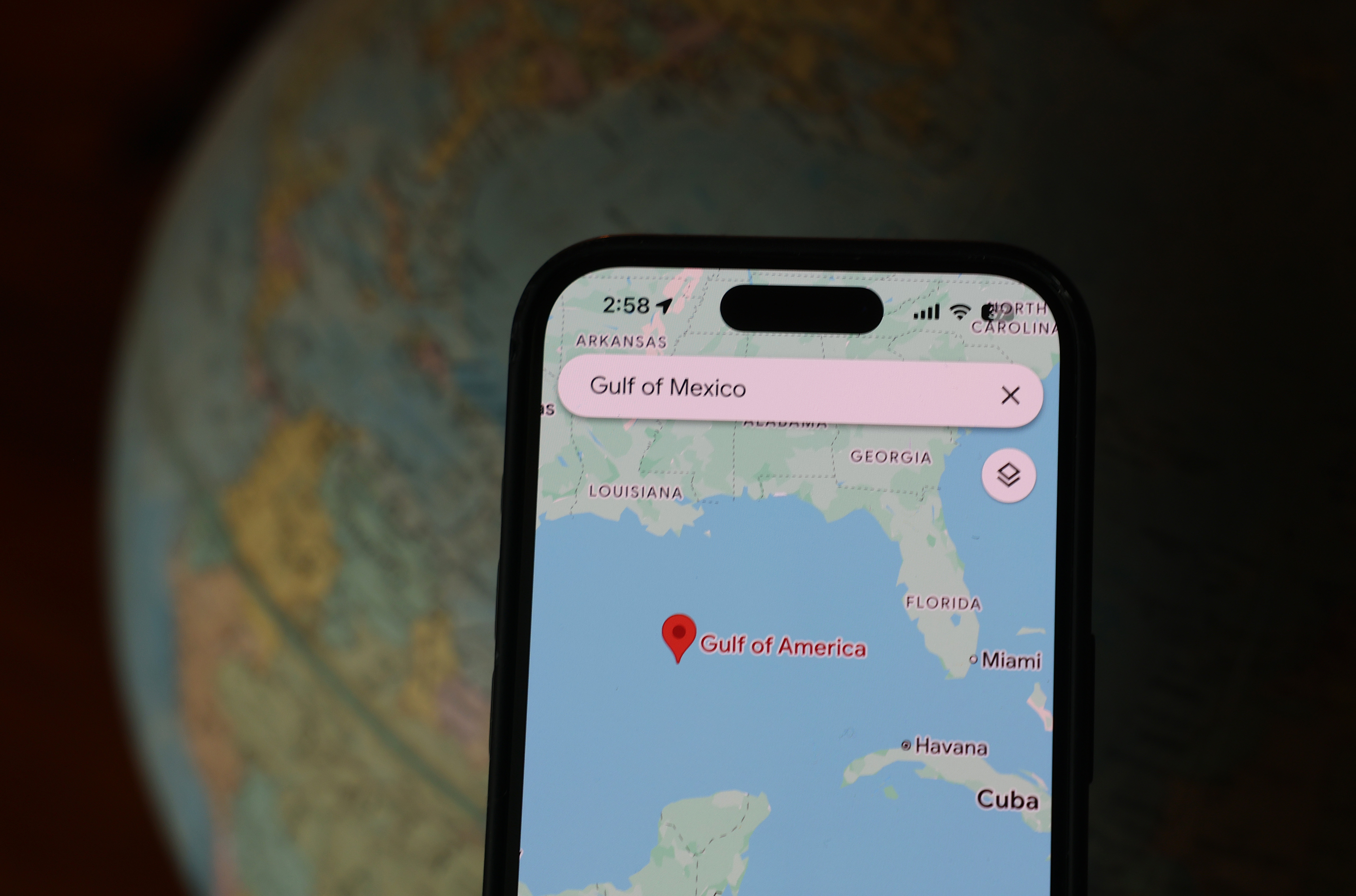If you’re using Google Maps in the United States, you may have noticed some recent changes to your world. The “Gulf of Mexico” is now the “Gulf of America,” and “Mount Denali” is again “Mount McKinley.” These are both changes instigated by US President Donald Trump.
Google is reportedly systematically removing resistance to these changes.
When compared to how common it is for the Google search engine to boost misinformation and fake news and feed into confirmation bias, changing the name of a body of water might not seem like a big deal. But the philosophical theory of “extended cognition” suggests such changes might not be so innocuous after all.
Cognitive processes — not all in our heads
The notion of extended cognition, along with the notion of the extended mind, was presented in a 1998 paper by British philosopher Andy Clark and his Australian colleague, David J. Chalmers. They argued that the environment plays an active role in our cognitive processes.
Take their example of “the use of pen and paper to perform long multiplication” — something that could have been done in the mind is extended, as it were, to the external world. If it had been done in one’s mind, we wouldn’t hesitate to call this a cognitive process.
The point is — moving this process outside the mind doesn’t change what it is. Rather, as they put it: “Cognitive processes ain’t (all) in the head!” They suggest that if the resources of an external tool are always there when we need them, then those resources are, in effect, “part of the basic package of cognitive resources that I bring to bear on the everyday world”.
Back in 1998, almost a decade before the advent of the iPhone, they used the example of a pocket calculator, with a suggestion that it’s unlikely the average person would always have one with them. Imagine, then, how smartphones play an integral role in many of our cognitive processes.
In fact, as Chalmers pointed out in a later piece, the iPhone he purchased quickly became part of his mind. This is because it replaced part of his memory, harboured some of his desires, facilitated some of his calculations and more. In short, we outsource many of our cognitive tasks to our technologies. Our smartphones, in particular, play an important role in keeping track, remembering, calculating and finding our way.
‘Attention economy’
In what’s come to be known as the attention economy, the role of technologies in our cognitive processes is amplified further.
As Google strategist-turned-philosopher James Williams notes, technologies’ low-level engagement goals include “maximizing the amount of time you spend with their product, keeping you clicking or tapping or scrolling as much as possible, or showing you as many pages or ads as they can.”
The more time spent on our phones, the more of our attention they demand, and the more integrated they are in our cognitive processes. When I’ve taught a unit on technology in Introduction to Philosophy courses in recent years, I’ve instructed students to read this piece by Canadian cognitive science scholar Karina Vold and reflect on their relationships to their phones — something most readily admit they’d never done before.
As Vold points out, there could be significant legal implications if courts were to accept the theory of extended cognition in a world where smartphone technologies are ubiquitous. They might even include whether and how the law could protect “what and how we think from undue influence.”
From this perspective, the fact that Google can change maps literally overnight gains new significance.
If we take the theory of extended cognition seriously, we can understand Google’s changes, like renaming the Gulf of Mexico the Gulf of America, as problematically undermining our autonomy. In a sense, Google is able to get into our cognitive processes and, at will, make changes — to our understanding and memory of how the physical world is structured and navigated — without our consent.
As a result, such changes fall on the wrong side of the admittedly blurry distinction between persuasion and coercion.
Persuasion versus coercion
Traditionally understood, persuasion respects individuals’ autonomy. It requires critical thinking and argumentation, which involve presenting reasons in support of a claim to people, who then use their own cognitive powers to decide whether to adopt or reject those reasons and claims.
Conversely, coercion is closer to a form of brainwashing. It involves undermining or bypassing a person’s ability to accept or reject an argument. It gets into the cognitive processes themselves, making changes without knowledge or consent.
In an era when technology companies compete for increasing shares of our attention, and therefore of our cognitive processes, it becomes increasingly difficult, but also urgently important, to be aware of whether we are being persuaded or brainwashed, and what we are being persuaded or brainwashed to believe.
Though the name of a body of water on a Google Map might not seem like a big deal, it’s at least a reminder to be vigilant.
This story was first published in The Conversation. Susan Dieleman is the Jarislowsky Chair in Trust and Political Leadership and Associate Professor of Philosophy at the University of Lethbridge.




